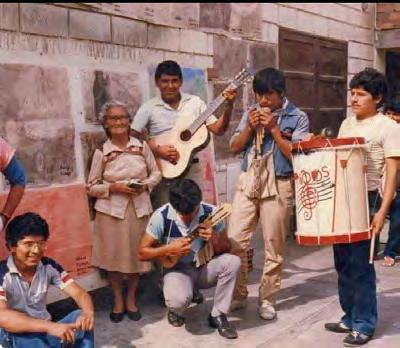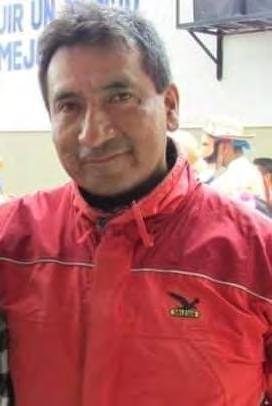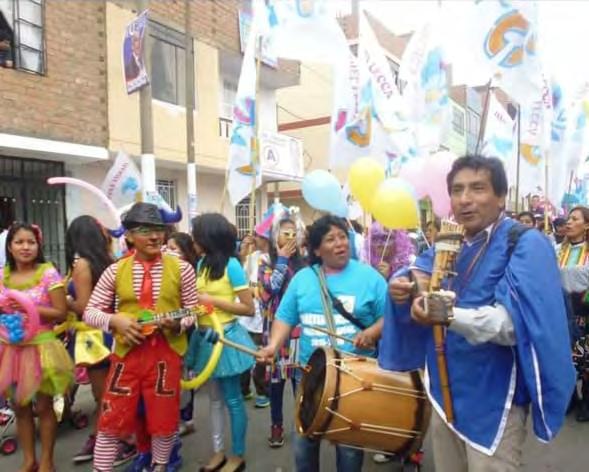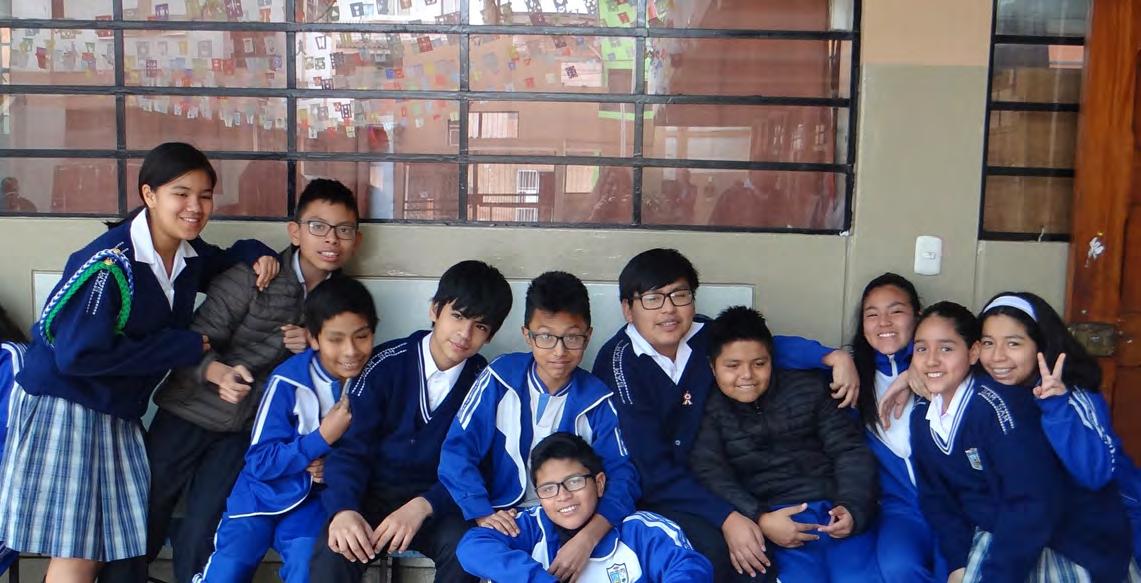
4 minute read
Peruvian Journal: Solidarity and What Unites Us
from DOME Summer 2021
by ursulineslou
Solidarity and What Unites Us
BY SISTER SUE SCHARFENBERGER
Advertisement
As I write this, I am feeling like it is chapter 2 or maybe 3 of previous Peruvian Journals. The themes keep weaving themselves together, even from the corners of creation to the center.
So, I want to share a story. You may recall our asking for prayers for Miguel Tenorio Sernaque. He is a teacher at Saint Angela Merici School, and the brother of Javier Tenorio Sernaque, about whom I have written in previous journals. Javier and Miguel are sons of Dominga Sernaque, a staunch defender of human rights and an active participant in the founding Christian community since the early days of the parish with Sisters Lee Kirchner and Martha Staarman in the 1960s.
Dominga died a few years ago, and this story is not really about her, but about Miguel and Javier who, indeed, learned much from their mother. Miguel is struggling into the fourth week with the coronavirus. The doctors do not know how he is still alive, but they say he is a fighter.
As a young man, Miguel would step up into the local buses and vans and play the quena or zampoña and entertain with folk music, and then pass the hat to get donations. For many years, he supported his young family that way. The doctors say that now, the reason Miguel is still alive is that his lungs were used to being stretched and exercised by the musical instruments, and so they avoided collapsing even under the strain of COVID. He is not yet out of the woods, but he is still resisting the virus. Javier is also a teacher in our school, but more than that, he is the person everyone goes to when there is a problem, a difficulty, or when they just need something done. Javier has been an intercessor during this time of the pandemic for many families who have been in need of prayers, oxygen, or financial support. He is a connector and someone you just cannot say “no” to when there is a prayer vigil to be organized, a collection taken up for someone to get the oxygen they need, or simply to help provide food for a family that has no income at the present. Javier has been making the daily hourlong trip to the hospital to get the doctors’ daily reports and provide




the medicines that are necessary for Miguel. When friends of Miguel offered to do a fundraiser (a chicken dinner) to help with the cost of medicines, Javier invited the teachers and a few friends to help out by purchasing the meal.
We were to pick up the purchase on Saturday at 1 p.m. in the local park when Javier would arrive with the prepared meal. As I approached the park, I saw a group of about 20 people waiting on the corner. I realized they were parents, teachers, former students. They were organized into small groups and one of the groups was collecting the money for the meal.
As we were chatting, more people arrived. Families. Former students, friends who had participated years ago in our parish groups, and friends of friends. Javier arrived with more than 100 dinners that were quickly distributed— a testament to his great organizational skills.
Solidarity, I thought. That’s what we do well. Many of us learned it together. Some of us learned it from Dominga. It’s in our genes—Javier’s, Miguel’s, and this huge family we call “La familia de Santa Angela Merici.”
Miguel died within twenty-four hours of the writing of this journal. His farewell ritual was an incredible tribute to the music he leaves in his family, his friends and his students.
Another Story
It is five days now since the runoff elections for the president of Peru. No definitive tally yet, but the difference between the two candidates is not even 1%. But the one with fewer votes is already calling “fraud.” Sound familiar?
Many people left their ballot blank. They could not vote for either candidate, as the two candidates represent two extremes—the radical left and the radical right. The country is sorely in need of change: programs and projects that are inclusive in their scope and realistic in their offering. We need to start with those who have always been left out: the indigenous communities of the Amazon, the forgotten communities of the sierra where there is no water, no health services, and poor schools, and the suburban slums of the big cities. We need a comprehensive program that considers our natural resources as gifts to be shared rather than products to be exploited. And we need a government that is not exploited by the rich nor corrupted by the powerful—a democracy that is for everyone and stretches way beyond the ballot box.
And what Peru needs is what our neighbors to the north need as well, and can we not say, our global neighbors, also? What can unite us are our efforts toward inclusivity, creating a more just society, and caring for our common home.








